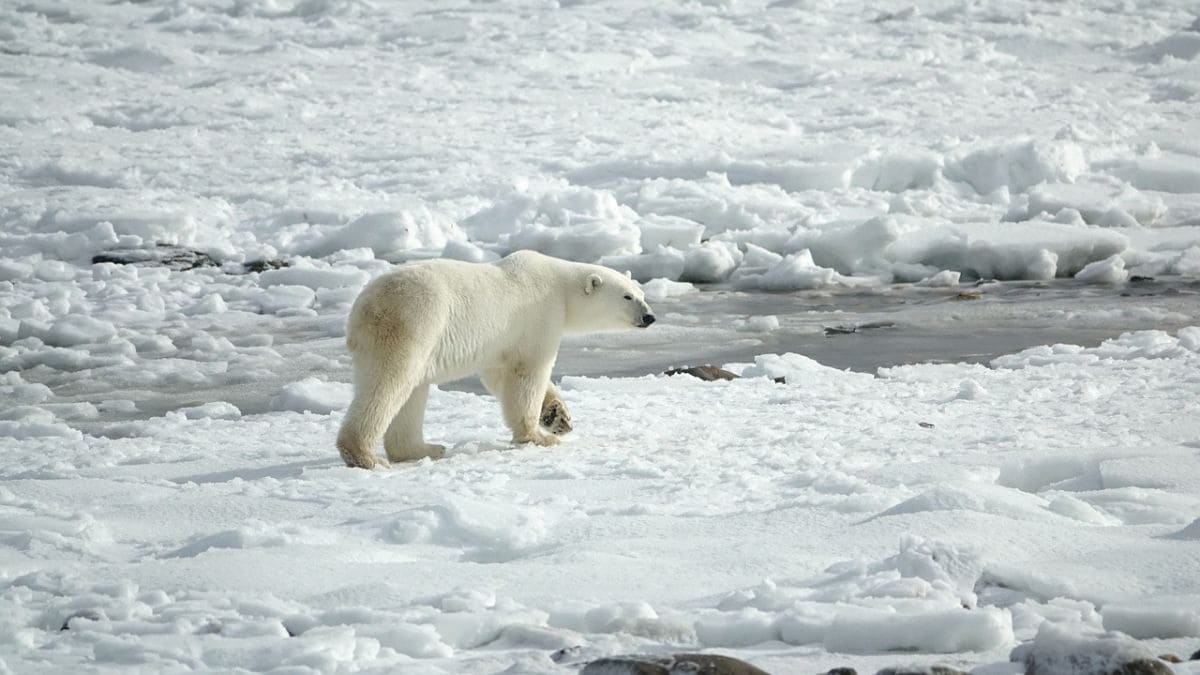New analysis led by the College of California, Riverside, suggests {that a} slowdown in a major ocean present could assist scale back Arctic warming projections by as much as 2 levels Celsius by the century’s finish. The examine was revealed in Proceedings of the Nationwide Academy of Sciences, investigating how a slowing Atlantic Meridional Overturning Circulation (AMOC) might have an effect on the speed of warming within the Arctic, a area at the moment warming at a charge three to 4 occasions quicker than the worldwide common.
Influence of AMOC on Arctic Temperatures
The AMOC, a vital a part of Earth’s local weather system, transports warmth from tropical areas to larger latitudes. In accordance with the examine, a weakening AMOC might imply much less warmth reaching the Arctic, thereby slowing the area’s warming. With out this issue, Arctic temperatures are projected to rise by as much as 10 levels Celsius by the century’s finish; factoring within the AMOC, this rise could also be restricted to round 8 levels.
Challenges for Arctic Ecosystems Regardless of Slower Warming
Whereas a decreased temperature enhance would possibly supply some aid, Arctic ecosystems nonetheless face appreciable challenges. Sea ice continues to soften, posing a menace to polar bears and different wildlife depending on ice-covered habitats for survival. With ice disappearing, open water absorbs extra daylight, intensifying the warming course of—a phenomenon often called the albedo impact. Wei Liu, affiliate professor of local weather change at UC Riverside and co-author of the examine, cautioned that whereas the AMOC slowdown might sluggish Arctic warming, the implications are complicated. “This isn’t merely a good-news story,” he remarked. “The broader influence on ecosystems and climate patterns should still be profound.”
Potential World Impacts of AMOC Slowdown
The examine additionally warns of doable local weather disruptions past the Arctic. For example, a slower AMOC could shift the Intertropical Convergence Zone (ITCZ), a tropical rain belt, southward. Such a shift might enhance droughts in areas reliant on the ITCZ’s rainfall for agriculture and water provides. Moreover, the examine notes that whereas melting sea ice doesn’t instantly influence sea ranges, different components like melting land ice and the thermal growth of warming ocean waters do contribute to rising sea ranges.
Future Uncertainty and Local weather Complexity
The analysis workforce used a local weather mannequin integrating ocean, ambiance, land, and sea ice interactions, isolating the AMOC’s impact by conducting simulations below totally different eventualities. Whereas this supplied insights, the researchers acknowledge ongoing uncertainties in regards to the AMOC’s long-term behaviour. Direct AMOC measurements have solely been out there since 2004, limiting information on its historic traits and future trajectory. “There’s nonetheless debate about whether or not the slowdown will proceed or if a complete collapse would possibly occur by century’s finish,” Lee famous.
Regardless of the momentary aid a weaker AMOC would possibly supply, Lee emphasised the significance of a worldwide perspective. “Even small shifts in ocean circulation can result in ripple results throughout the planet,” she stated. “The way forward for the Arctic—and our world—will depend on the actions we take now to handle local weather change.”

